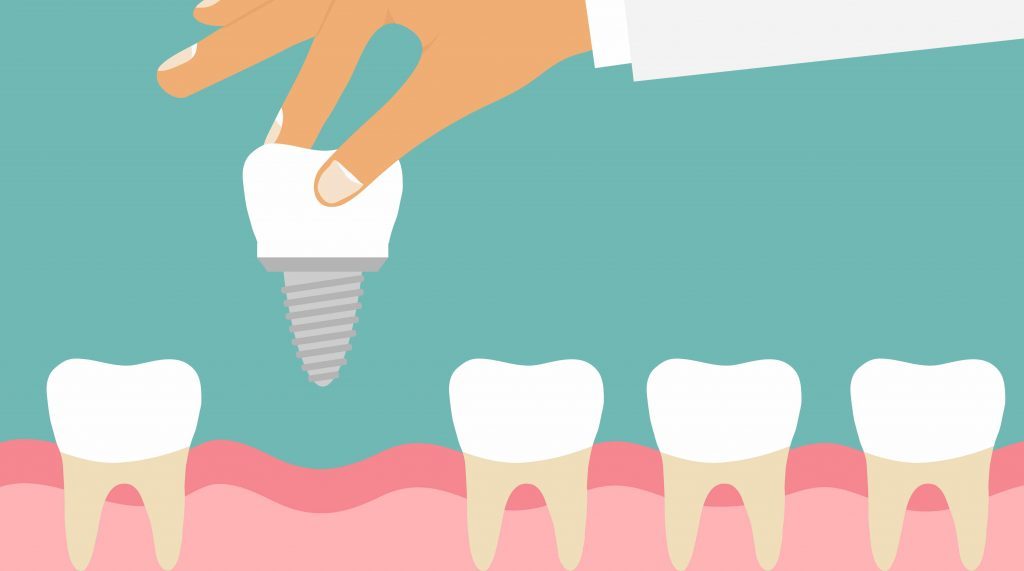
Simran Bains discusses the various roles within restorative dentistry.
Restorative dentistry evolved as a recognised specialty in 1973. It involves the study, diagnosis and integrated management of diseases of the oral cavity and their supporting structures, arising as a result of disease, inheritance or trauma. It incorporates three mono specialties: endodontics, periodontics and prosthodontics, and often relates these in terms of managing patients who require multi-faceted care.
This interdisciplinary approach aims to rehabilitate the oral cavity to the functional, psychological and aesthetic requirements of the patient as an individual.
Patients could have developed problems from dental caries, periodontal disease or tooth wear. They could be affected by trauma, developmental problems or oral cancer and requiring rehabilitation through multi-disciplinary care.
Dentist with a special interest (DWSI)
This is one of a number of terms used to describe an emerging group of dentists who are locally contracted to provide clinical services beyond that usually delivered by a general dental practitioner, but not at the level of a specialist or a consultant. It is recognised that a group of patients require dental care between that which is available in the NHS-contracted primary care environment and that which is available in hospital services or in the largely privately-funded specialist practices.
The need for a DWSI arises as the roles of clinical colleagues within a managed clinical network (MCN) become defined. MCNs in dentistry are a relatively new concept and may be widely introduced in the coming years.
The qualification, experience and skills required of a DWSI have not yet been defined. However, experience in both primary and secondary care and completion of a postgraduate clinical qualification are likely to be expected.
Specialist in endodontics, periodontics and prosthodontics
These dentists are experts in one of the three mono specialties of restorative dentistry and work in either primary or secondary care, providing specialist dental care for referred patients.
To become a General Dental Council-registered specialist in one of these subjects, a dentist will usually need to complete a minimum of a three-year full-time specialist training programme. Entry to these programmes is competitive and the entire programme is usually self-funded. To be recognised as a specialist by the GDC, postgraduates need to have passed a specialist membership examination of one of the Royal Colleges of Surgeons.
Consultant in restorative dentistry
Consultants have completed five years, full-time training programme and are required to sit the intercollegiate specialty fellowship examination. Successful completion allows entry to the GDC’s specialist list in restorative dentistry.
NHS consultants usually work in secondary care, alongside other specialists, surgeons and physicians, providing complex care to patients. Consultants are also involved in teaching, research and leadership of the clinical team. In recognition of this, an NHS consultant may be given an honorary appointment to a local university. In addition to clinical services, these will often have a stronger focus on teaching or research than an NHS consultant colleague.
Advice on restorative dentistry
Recently I did a short Q&A with Mr Martin Ashley, a consultant and honorary senior lecturer in restorative dentistry at the University Dental Hospital of Manchester. Here he imparts some advice to young dentists about restorative dentistry.
Simran Bains (SB): What attracted you to a career in restorative dentistry?
Martin Ashley (MA): I knew I wanted to be better as a dentist than when I first qualified so I pursued a hospital training pathway and was open minded about which direction, as I enjoyed all aspects of the work. Having worked within all other specialties, restorative dentistry was the most appealing for me as it covered so much of dentistry and allowed me to manage most patients and to enhance a full range of clinical skills.
SB: What are the most challenging aspects?
MA: I think that molar endodontics is technically difficult and I can fully understand why many less experienced colleagues don’t enjoy this, but also why so many love the detailed work and the satisfaction of pain relief and saving a failing tooth.
SB: What are the most enjoyable aspects?
MA: I really enjoy that I am respected for my training, ability, confidence and calmness to manage almost all clinical problems and as a consultant, I work with and support such a large number of colleagues as we provide patient care together.
SB: Which skills in particular are the most important?
MA: Sharp eyes and quick fingers, of course. The softer, non-clinical aspects are much more important though. We have to be really believable and trustworthy as we are selling a treatment plan, an oral health message and a philosophy of care.
SB: What is the pathway to a career in specialising in restorative dentistry?
MA: There are a few ways to get onto the final career ladder but however you do it, you need to be appointed to a specialty training post in restorative dentistry, either in the NHS or in an academic university post.
SB: How do you manage patients’ expectations?
MA: Experience teaches us what is possible and what is unlikely to work well. Be open and honest and share decision-making with the patient. Remember it is a partnership towards a healthy mouth. We should aim to deliver a mouth that is attractive, comfortable, healthy, functional and reliable.
SB: What tips do you have for young dentists?
MA: Hard work works. Clinical dentistry is not easy and there isn’t anyone who is naturally good at this. We have to work hard and have hour after hour of thoughtful practice. Watch other colleagues work and listen to how they speak to patients. Keep practicing and keep learning.
The anxiety will never leave you completely, but it keeps us focused on delivering high standards of care for every patient.


